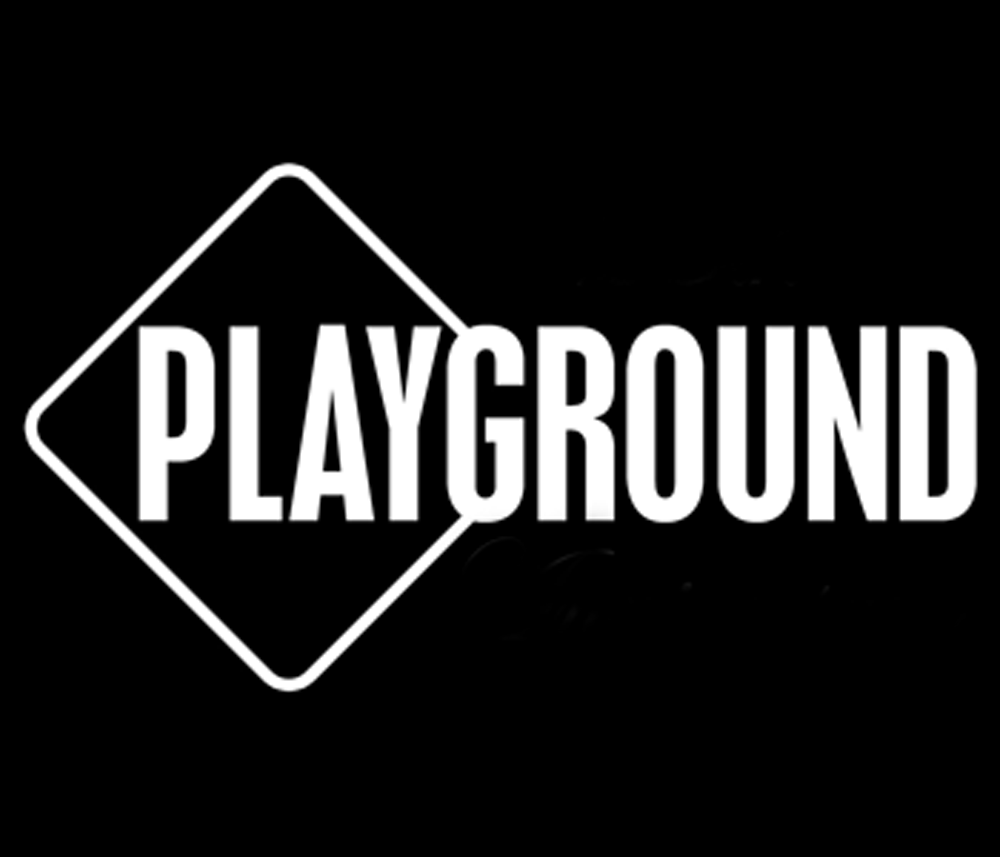Inside the Zoom Fest: Jonathan Luskin & Diana Burbano
 Last year’s first-ever PlayGround Zoom Fest laid the groundwork for PlayGround to continue to deeply invest in their commitments to accessibility, equity, and artistic innovation. This year’s Zoom Fest is no different, featuring full length digital premieres, dynamic developmental readings, evenings of bite-sized storytelling and all under a radically accessible admission-free structure!
Last year’s first-ever PlayGround Zoom Fest laid the groundwork for PlayGround to continue to deeply invest in their commitments to accessibility, equity, and artistic innovation. This year’s Zoom Fest is no different, featuring full length digital premieres, dynamic developmental readings, evenings of bite-sized storytelling and all under a radically accessible admission-free structure!
This year’s two full-length play premieres, Perfect by Jonathan Luskin and Sapience by Diana Burbano, both feature our human relationship with scientific concepts, explorations of intimacy and uncertainty, and an examination of the ways in which our genetic predispositions affect our relationships at large! We “sat down” over email for a brief interview with our two debut playwrights, Jonathan Luskin and Diana Burbano, to discuss the inspirations for their work!
PlayGround: What event or experience inspired this play?
Jonathan Luskin: My wife, Leslie, and I met when we were in our late 40s and, although we had both been married before, neither of us had children. She enjoys children and had some regrets about this and found herself scrolling through FaceBook, envious of the relentless stream of happy family stories posted by proud parents. These sessions would leave her depressed, an impact of social media that has been documented in scholarly articles. So, I wrote Small Batch Baby, a 10-minute play for PianoFight’s ShortLived Festival. The play was one of five finalists selected from one-hundred entries in the competition.
Diana Burbano: Sapience was inspired from watching a dear friend of mine and her nonverbal child struggle towards communication. The mother has been told her child was “locked in” and that there really wasn’t anything she could do to help them communicate. She decided on her own to try all sorts of different methods to see what would help, and of course she was right to do so. She was able to find a way to unlock the child using a combination of therapy and computers. She worked so hard and with so little help from outside forces. It made a huge impression on me. My own struggles being on the Neurodiverse spectrum were not nearly as severe, but they definitely had repercussions in the way I was able to absorb education, to communicate, to make my way in the world. I think what I’m most interested in is communication, language, and how we try to make ourselves understood.
PG: What has the development of this play looked like? Have there been any major changes? What if anything has stayed constant?
JL: The play has been through three major stages of development; a reading at the 2019 PlayGround Festival of New Works, a workshop at the UC Davis Catalyst Festival; a Theatre Think Tank, and a PlayGround residency and workshop in anticipation of the upcoming premiere. There have been countless revisions, especially in how the three stories interweave and connect with one another. A quick search on my hard drive shows more than 100 drafts in my “export” folder. Characters have come and gone and stories have been reordered in time and place. What has been constant is my efforts to make each characters’ goals clear, their stakes high, and their obstacles significant, personal, and believable. The themes of perfection, imperfection, the meaning of disability, and the impact of money, social media, and genetic engineering on the future of families have been present in the play from the beginning, but refined with each draft.
DB: When I started to write this play it was going to be about AJ the child on the autistic spectrum, and Wookie the orangutan. I don’t know what I was envisioning but I knew that’s what the story was about. I tend to overwrite and then cut and cut and cut and I’ve been very lucky to have actors who I could shape the piece with. I was also extremely fortunate to be able to have consultants who are themselves on the autism spectrum and who could help me investigate the world I was building, and that I wasn’t doing any harm with the way I wrote these characters. Both of the characters on the spectrum are written to be played by neurodiverse actors, not people “playing autistic.” I actually began this piece when I was in the writers circle at Center Theatre Group. It’s grown so much since then!
PG: What does producing a digital premiere feel like? Your plays have a lot of scientific themes and discuss connection: how is that affected by the digital theatre era?
JL: Well, I don’t really see a strong connection between the scientific themes and how people connect and the digital premiere. The play was written for live performance and has been adjusted to both adapt to and take advantage of a digital presentation. In a physical production there are always constraints and limitations that must be overcome with creative solutions. A digital premiere is much the same, just with a different set of constraints and limitations. Our goal is for the audience experience to be primarily informed by the text and the performances, not the medium.
In a practical sense, the opportunity to stream the performance, both live and as a recording, means that we will have a global audience. I know people who will watch from all over the United States and as far away as New Zealand.
DB: Right now in pandemic times I think we all feel like an orangutan stuck in a cage. There’s plenty of stimulation but there’s not a whole lot of tactile human contact. However all that being said, I’m extremely grateful for digital theater because it kept me connected to this art that I love so much. It’s enabled me to work with artists all around the country that I probably wouldn’t have had a chance to work with if we had to be in-person. It’s really evened the playing field for people outside of the larger theatrical hubs, making theater more accessible. Digital theatre isn’t perfect but it definitely has its advantages.
PG: Did you have to do any community or academic research while writing the play?
JL: A lot. I worked with at least a dozen consultants, six people from just the disability community alone. I worked with geneticists, bioethicists, Science and Technology and disability scholars. I attended a conference on CRISPR gene editing, visited a genetics lab, and read countless articles and books. I sent the play to another dozen readers from many backgrounds.
DB: For Sapience, not only did I have to delve into Neurodiversity and the autism spectrum, but I also had to learn about primatology. I think it’s part of the reason I love to write plays; I enjoy the research that happens before any of the writing actually starts. So much great stuff to delve into [and] learn. I always have 75 tabs open on my computer and they’re all things that I think are important and should be in the play.
PG: In one sentence, what should people expect from the play?
JL: Engaging, thought provoking, humorous entertainment.
DB: Communication comes in many different ways.
PG: In one sentence, what does this digital premiere mean to you?
JL: The opportunity to collaborate with a word class team of theater artists to develop the play and present it to a global audience.
DB: So much gratitude for Jim and for PlayGround, for believing in me and my work.
PG: In one sentence, what does working with PlayGround mean as a playwright?
JL: Unparalleled opportunity to develop the play in collaboration with a team that brings their live performance skills to revise and improve the play and to see an audience react to my work.
DB: Working with PlayGround means there will be care taken, it will be thoughtful, it will be rich, it’s always a lot of fun!
This year, for the very first time, these plays are available via live-stream on their respective weekends and available after the fact via on-demand. To reserve your tickets to any of the exciting content in this year’s Zoom Fest, visit https://playground-sf.org/zoomfest/ and to join the new Potrero Stagers membership program, giving you exclusive digital access to stream most of PlayGround’s content even after the fact, visit https://potrerostage.org/stagers/.
Diana Burbano’s Sapience premieres May 22 and May 23 at 7pm PT and Jonathan Luskin’s Perfect will be available on-demand through May 30. Register for free tickets to Sapience here. Register for on-demand access to Perfect here.
